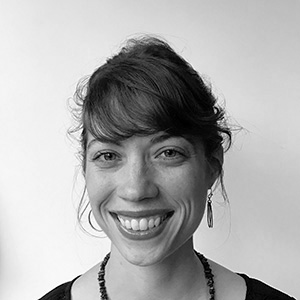Categories
Behind glass, in the darkened basement of Museo Chileno de Arte Precolombino (yup, that’s where I spent winter break!), is a delicately lit wall with knotted balls of yarn. It could be confused for just another hipster macrame piece. Except that it’s not the fruits of an instagrammable hobby. It’s a visual communication system, designed by the Inca people, well over a thousand years ago. Although they didn’t have a written language, they mastered a way to store and present data, in communicable form, long before computing software could do the same. Their information design capabilities, coupled with their organizational management prowess, contributed to rapid scale. In just 95 years, from 1438 to 1533, a massive swath of land from central to deep South America fell under Incan control. But scale certainly doesn’t equal sustainability. By 1573, the Incas were off the map. Spanish conquistadors took over.
And Incan ideas largely disappeared, covered by thick forest jungle.
The rapid rise and repeal of big ideas, and the regimes who promoted them, is a potent motif across Latin America. My how threatening ideas can be, upending who holds wealth and power, and what is just and good, for whom.
For the past year, we have veered away from big ideas. We deliberately placed our focus on the conditions for ideas to take hold, rather than on the texture or weight of the ideas themselves. That led us to turn our attention inward. Organizations rather than people became a focal point. Ethnographic work centered on organizational dynamics: on power & hierarchy, roles & identity, systems & processes, routines & practices and values & beliefs. Not surprisingly, we surfaced significant gaps between compliance-laden managerialism and deviant-laden experimentalism. The ideas staff generated to close the gap were decidedly underwhelming. At the time, we thought it was more important for organizations to own ideas, and deem them implementable, than for those ideas to upend the natural order and never be implemented. One organization prototyped a new staff orientation process. Another organization sketched a platform for job seekers to find mentors. The one organization that tried a new way of doing professional development, predicated on manager’s taking a different role, floundered. Their idea was ultimately rejected.
The ideas that were most palatable were embraced because they reinforced, rather than threatened, how things are done today. These were ideas that accepted our current organizing framework: managers, staff, clients, case notes, referrals, and files. The challenge is, we at InWithForward don’t accept the current organizing framework. In our desire to get to the too often elusive implementation stage, we might have been too agnostic about the quality of ideas. We put learning the process of experimenting ahead of learning what constitutes an idea worthy of implementing. And those are ideas that might move us towards a welfare state premised on a different relational basis: that of fellow neighbours and citizens, not anonymous clients and consumers.
This isn’t about incrementalism versus radicalism. Small, incremental ideas can embody humanistic and relational values. This is about deviance versus acquiescence.
Deviance is a seemingly dirty word, connoting deliberate disregard for the rules, a flagrant criminality. And yet, Emile Durkheim, the famed sociologist who pioneered much of the early work on deviance, was clear: deviance is also our only source of true innovation. Only by breaking social norms can we re-imagine them. Had Claudette Colvin, Rosa Parks and plenty of courageous peers not deliberately disregarded racist rules in Montgomery, Alabama, they would not have kickstarted a national conversation about race, fairness, and basic human decency that changed the law and, ever so slowly, social norms and expectations.
We talk often about positive deviants: about the people who buck the trend, who perform behaviors that enable them to thrive, despite living in similar circumstances to those who are struggling. But, we haven’t talked much about positive deviance, about the act of deliberately deviating from the norm, to expose fundamental questions about what is good, what is just, what is fair. Prototyping the future should be a deviant act. And in 2019, we can and should be unapologetic about the link between deviance and innovation.
Indeed, 2019 is the year for embracing big ideas, again.
Kudoz remains our best example of big ideas packaged into implementable form. The story of Kudoz isn’t one of process innovation — although we did use an innovative process — it’s a story of how to make every day like World Expo 1986, a story of how novelty got subsumed by routine, a story of safety and security taking primacy over equally human needs for adventure and actualization, and a story of behavioral management overtaking learning theory.
And, it’s been darn hard to get those ideas to spread. But, we are not slowing down. Far from it, this is the year, to re-articulate what Kudoz stands for: to put the story front in centre in our communications and refurbished website, and ensure that the big ideas are taking shape and form in the every day interactions. This is the year to renew our commitment to take Kudoz to new places to more people.
This is also the year to spawn more big ideas. We closed out 2018 with over 250+ ethnographies and three overarching ideas to bring into our 2019 design work:
- Conviviality (versus separateness) That sense of warmth, of hospitality, of sharing great food and great company at neighborhood and city scale.
- Colour (versus muteness) The vibrancy, the texture, the soundscape of our collective identity palette.
- Movement (versus stagnancy) Going places, hitting the pavement, making things happen, rather than waiting for things to happen to you.
In 2019, we have three opportunities to bring our fledgling ideas to life:
1) Through prototyping solutions in the immigration space via Grounded Space, and engaging a wider berth of community to own and nourish early concepts
2) Through building Grounded Data, and creating a platform for human-centered data & ideas that change policy conversations
3) Through strong storytelling, including revised websites, more social media, a podcast, a book, etc.
Big ideas aren’t possible without inspired people — without a team who can attend to but rise above the mundane, dream up and down and laterally, deeply listen, bring in divergent voices, catalyze others, jump into the fray bravely, and put their own selves on the line. You are that team. And for that, I am truly thankful.
More and more, we view InWithForward as a network. Not as a typical command-and-control organization. We want to grow, not just by putting more people on payroll, but through the right kind of partnerships. We have much room to hone our culture: to create the arena to bring out our personal and collective bests, and to practice what we preach.
InWithForward is, at its best, a trampoline for us all: a challenging, liberating, even exhilarating place to jump and fall and tumble and maybe, for a moment, fly.
Love, Sarah

